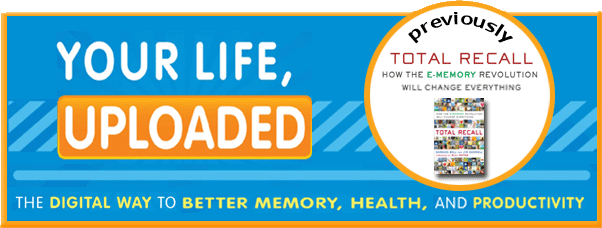FileThis|Fetch - another "keep it forever, keep it together" play.
 Tuesday, June 25, 2013 at 8:18AM
Tuesday, June 25, 2013 at 8:18AM Check out FileThis|Fetch. They will download your documents from banks and utilities and store them in your repository of choice: Evernote, Dropbox, Box, Google Drive, or Personal.com. They are following two trends that will be growing this decade as life-logging emerges and changes society: "keep it forever" and "keep it together."
The first trend is "keep it forever." Way back in the stone age of the 1980s, PCs were for geeks in business, and backups were only done by accountants on floppies. The rest of us had more fun to attend to. Then we hit the day when our family photos existed only digitally and had that aha moment: last year's status reports can get fried, but not my personal photos! More and more people are realizing that they want to keep their bits forever. Backup services have moved from the fringe of geekdom to mainstream TV and radio ads, and using them has evolved from typing arcane commands to signing up for automated cloud-based services.
The second trend is "keep it together." One of the first wins we discovered back in the MyLifeBits project was the power of bring data together. Instead of photos in the photo app, email in the email app, location in your GPS app, and so forth, we brought everything together. The result was potent. Now you could find photos taken at the same time as a calendar appointment or look for a document you emailed on the day you were in Boston.
FileThis|Fetch is part of both trends. You can keep access documents after the institution no longer makes them available to you online, or even after you have closed your account. And now you can find, say, all your financial statements from last March without having to login to each institution (your credit card, your bank, your 401K, etc.) individually.
This service is not the first and it won't be the last in this growing space. For example, it has a cousin in the social area called SocialSafe that will back up all your social media (Facebook, Twitter, Instagram, Pinterest, etc.) to your hard drive.
The pitch of FileThis|Fetch says it is "fulfilling the promise of paperless." Back in 1999 when Gordon Bell started his effort to go paperless it opened the door to the world of life-logging and the digital life. Now we can see mainstream culture beginning to follow down his path.
Keep it forever, keep it together!
 backup,
backup,  paperless in
paperless in  Getting Started
Getting Started 